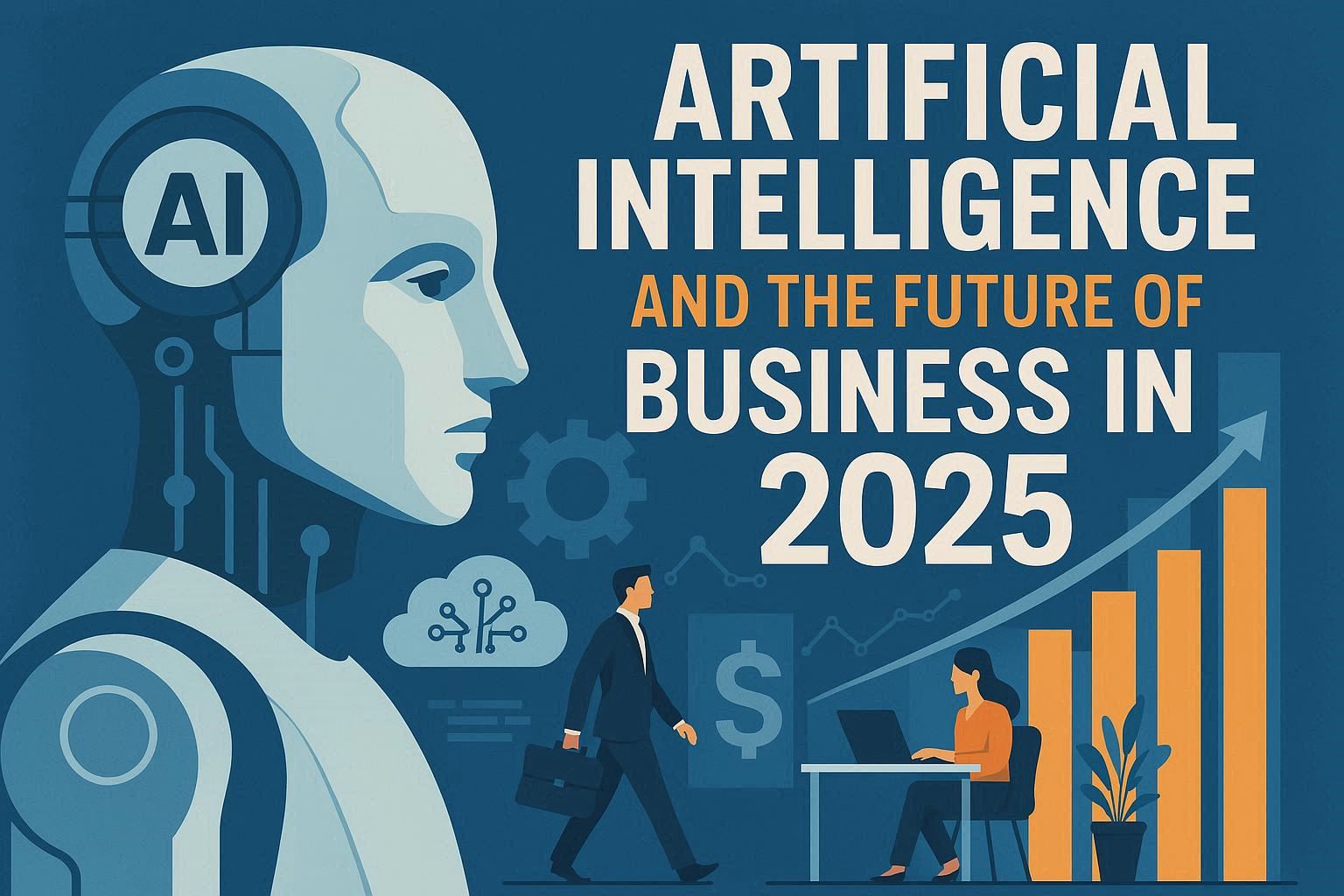Artificial Intelligence (AI) is no longer a futuristic idea—it is now a powerful force transforming industries, reshaping how businesses operate, and creating new opportunities for growth. In 2025, AI is expected to play an even greater role in business strategy, customer engagement, and operational efficiency. From small startups to multinational corporations, organizations that adopt AI will gain a significant competitive edge. This article explores how AI is changing business today, the opportunities it presents, the challenges it brings, and what the future may hold.
1. The Growing Role of AI in Business
1.1 Automating Routine Processes
AI excels at handling repetitive tasks that would otherwise consume human effort and time. Businesses are using AI to automate payroll, scheduling, email responses, and data entry. This frees up employees to focus on creative and strategic tasks, boosting overall productivity.
1.2 Enhancing Decision-Making
AI-driven analytics provide businesses with valuable insights into customer behavior, market trends, and operational performance. With machine learning models analyzing massive datasets, executives can make faster, more informed decisions that reduce risks and identify opportunities earlier.
1.3 Improving Customer Experiences
Chatbots, virtual assistants, and AI-powered recommendation systems are revolutionizing customer service. By providing personalized, 24/7 support, companies can improve satisfaction and build stronger relationships with their customers.
2. AI-Driven Business Opportunities
2.1 Personalized Marketing
AI enables businesses to target customers with precision. Algorithms analyze browsing history, purchase behavior, and preferences to deliver tailored product recommendations and advertisements. This increases conversion rates while reducing wasted marketing spend.
2.2 Supply Chain Optimization
AI helps businesses predict demand, manage inventory, and optimize logistics. With real-time data analysis, companies can avoid stock shortages, reduce delivery delays, and lower costs. This is especially valuable for industries like retail, e-commerce, and manufacturing.
2.3 New Products and Services
Entrepreneurs are using AI to develop innovative products such as smart home devices, autonomous vehicles, and advanced healthcare tools. Entirely new industries are emerging around AI applications, offering startups exciting growth opportunities.
3. Challenges Businesses Face with AI
3.1 High Implementation Costs
While AI provides long-term benefits, the initial costs of adopting AI technologies can be high. Small businesses often struggle to afford advanced tools, creating a competitive gap between large corporations and smaller players.
3.2 Data Privacy and Security
AI relies heavily on data, raising concerns about how businesses collect, store, and use customer information. Stricter data protection laws mean companies must prioritize transparency and ethical data practices to maintain trust.
3.3 Workforce Displacement
Automation through AI may replace some traditional jobs, particularly in administrative and manufacturing roles. Businesses must balance efficiency gains with social responsibility by reskilling and upskilling employees.
4. Strategies for Successful AI Adoption
4.1 Start Small and Scale Gradually
Instead of overhauling entire systems, businesses should begin by applying AI to specific areas like customer support or marketing. Once results are clear, they can expand AI use across more complex processes.
4.2 Invest in Employee Training
A workforce that understands how to work with AI is essential. Companies should offer training programs to help employees adapt to new technologies and embrace AI as a collaborative tool rather than a threat.
4.3 Collaborate with AI Startups
Partnerships with AI-focused startups can provide access to innovation without the need for massive in-house investment. Businesses can leverage startup expertise to implement customized AI solutions more efficiently.
5. The Future Outlook of AI in Business
5.1 AI-Powered Decision-Making
By 2025, AI will become an integral part of executive decision-making. Predictive analytics will guide investment strategies, risk management, and even hiring decisions. Companies that leverage AI effectively will move faster than their competitors.
5.2 Expansion of AI in Customer Service
AI-powered chatbots and voice assistants will become more advanced, capable of handling complex queries with human-like empathy. Businesses will rely on AI to provide seamless, multilingual support worldwide.
5.3 Growth of AI Regulation
As AI becomes more powerful, governments will introduce stricter regulations to ensure ethical use. Companies will need to comply with transparency requirements, avoid biased algorithms, and protect user privacy.
Conclusion
Artificial Intelligence is not just a technological tool—it is a business revolution. In 2025, companies that embrace AI will enhance efficiency, improve customer experiences, and unlock new opportunities for innovation. At the same time, they must address challenges such as cost, privacy, and workforce disruption. The future of business will be shaped by those who adopt AI strategically, balancing technological power with human creativity and responsibility. Businesses that master this balance will not only survive but thrive in the AI-driven economy.

